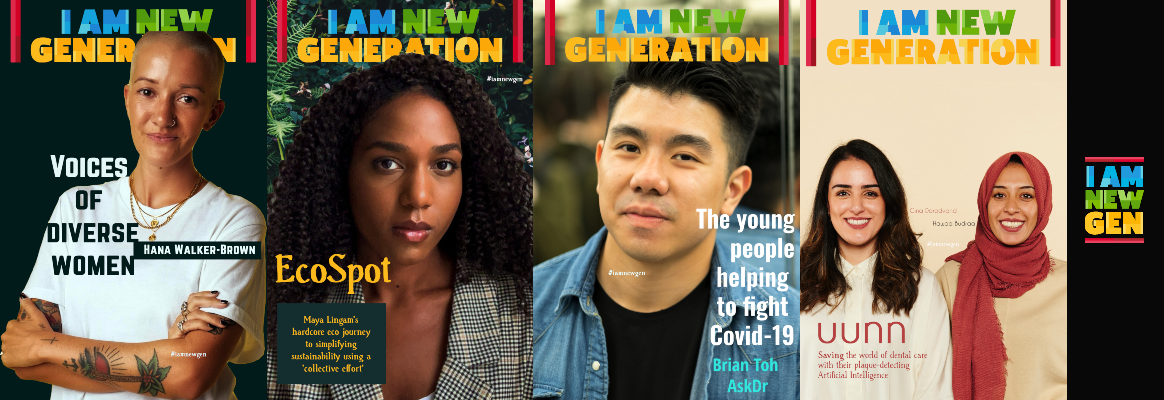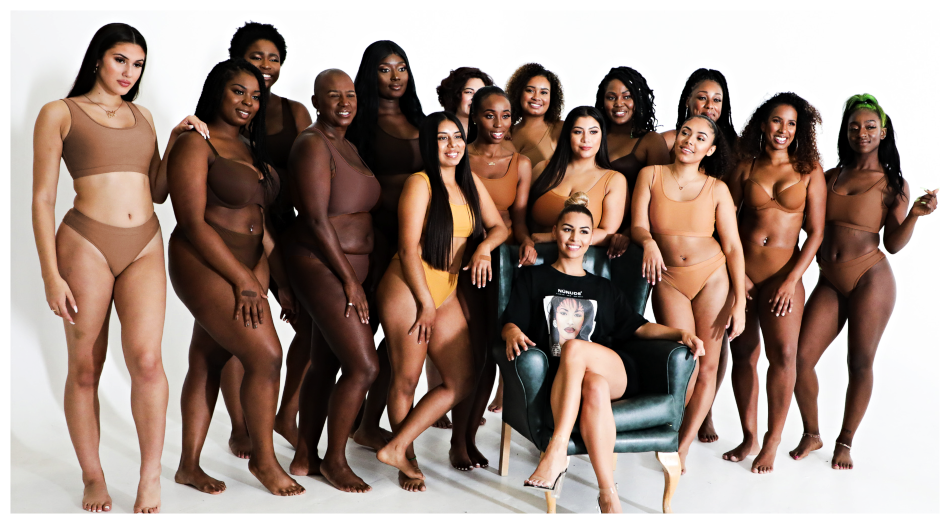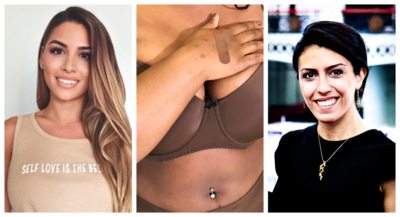Women of colour are hustling like never before to launch their own companies. In fact, figures show they are starting new businesses faster than any other demographic.
A 2019 survey conducted in the US revealed that women of colour account for 89% (1,625) of the new businesses opened every day.
The challenges they face, however, are immense. A study from a year earlier also revealed that from a total of $85bn (£65bn) in VC funding only 2.2% went to female founders.
Of this percentage, less than 1% was invested in firms led by women of colour.
The huge levels of entrepreneurial spirit these women are showing are not being matched by the amount of funding or recognition offered to them.
The struggle is very real for UK-based women of colour too.
Just ask Joanne Baban Morales, the founder of the skin-matching apparel company Nünude, which she launched in 2017 after realising the popularity of shapewear in her home country of Colombia.
In 2019, Morales began collaborating with Vivian Murad, the founder of Swedish brand Skin Bandages.
They teamed up to launch the Nünude x Skin Bandages of plasters in different skin tones.
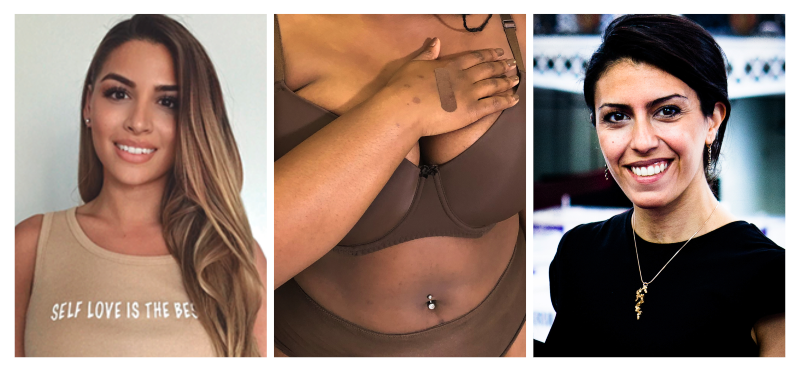
Morales says: “When it launched in the UK, we asked people where they would like to see the plasters. They said supermarkets, pharmacies, everywhere.
“At no point though were we able to pitch the idea to Tesco, as we were passed from one person to another to another. But the same year that we launched, Tesco brought one [of our products] in each colour from the Etsy website.”
At the end of February 2020, Tesco launched its own range of skin-tone matching plasters.
Just days later, a viral tweet sparked claims Tesco had copied or been inspired by Nünude x Skin Bandages.
Tesco has denied these claims and a spokesperson said: “We made the decision to sell a more diverse range of plasters after a colleague saw a tweet which described the emotional response one man had the first time he used a plaster that matched his skin tone.
“No UK supermarket had ever stocked plasters in a range of skin tones before and we saw this as an opportunity for Tesco to lead the charge and make a difference.”
The retailer said looking at comparable products was a normal part of its processes and would only occur once development was underway.
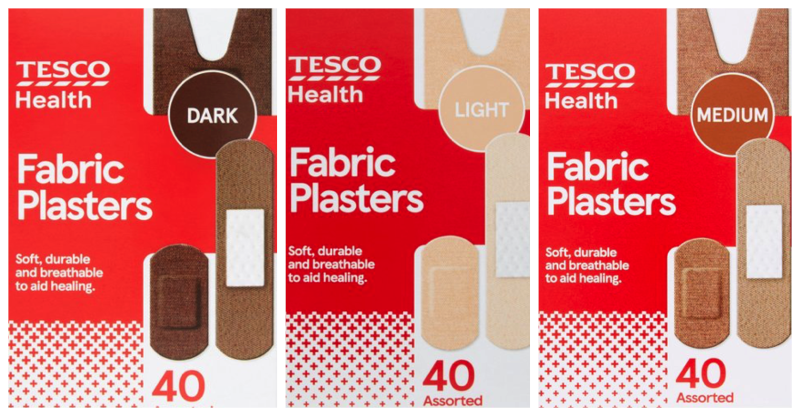
Its fabric, it says, was the same as that used in its regular plaster range. One source of Morales’ frustration, however, is a lack of collaborative opportunities from larger firms.
I asked Tesco if it could do more to work with smaller brands and it provided details of its incubator programme, which is set up in 2017.
Morales naturally remains disheartened that Tesco did not invite her and Murad to work with the company.
She says: “Why wouldn’t a big retailer not want to work with a brand that’s already connected? We’ve done market research for three years from our loyal customer base. We’ve done the hard work.”
Incubators such as Tesco’s may be providing opportunities for a small number of early-stage female founders, but many others feel that they are never offered a seat at the table by bigger brands.
Another frequent bugbear is dismissive attitudes. Morales highlights a conversation she had with another well-known company, which dismissed her products as being too niche.
“How can they say that, especially in such a diverse city like London? From a business perspective, there is a demand for it. The product would make money and it would fit in with the whole diversity aspect,” she says.
The biggest challenge though is trying to compete with these much larger companies. “They can do it bigger and better because of their resources,” says Morales. “People say ‘why don’t you do it in different colours or bigger sizes?’ ‘How come Kim Kardashian’s [shapewear brand Skims] can do it but you can’t?’
“These companies have all the money in the world… That’s the hardest thing because people don’t always understand all the passion behind [what we do]. And without resources or funding for marketing, we can’t express it.”
Female founders of colour have so much to offer, but until big business – and society at large – acknowledges the scale of their talent and innovation, it will sadly remain an uphill struggle for them to reach their true potential.
Written By: Tola Onanuga – a freelance journalist and editor covering a range of topics including technology and race issues – @Tola_o
Images Copyright – Nünude (Main image), Tesco (middle image)
More Stories
The women on a mission to redefine nude with their ‘skin-toned plasters’ – Skin Bandages
